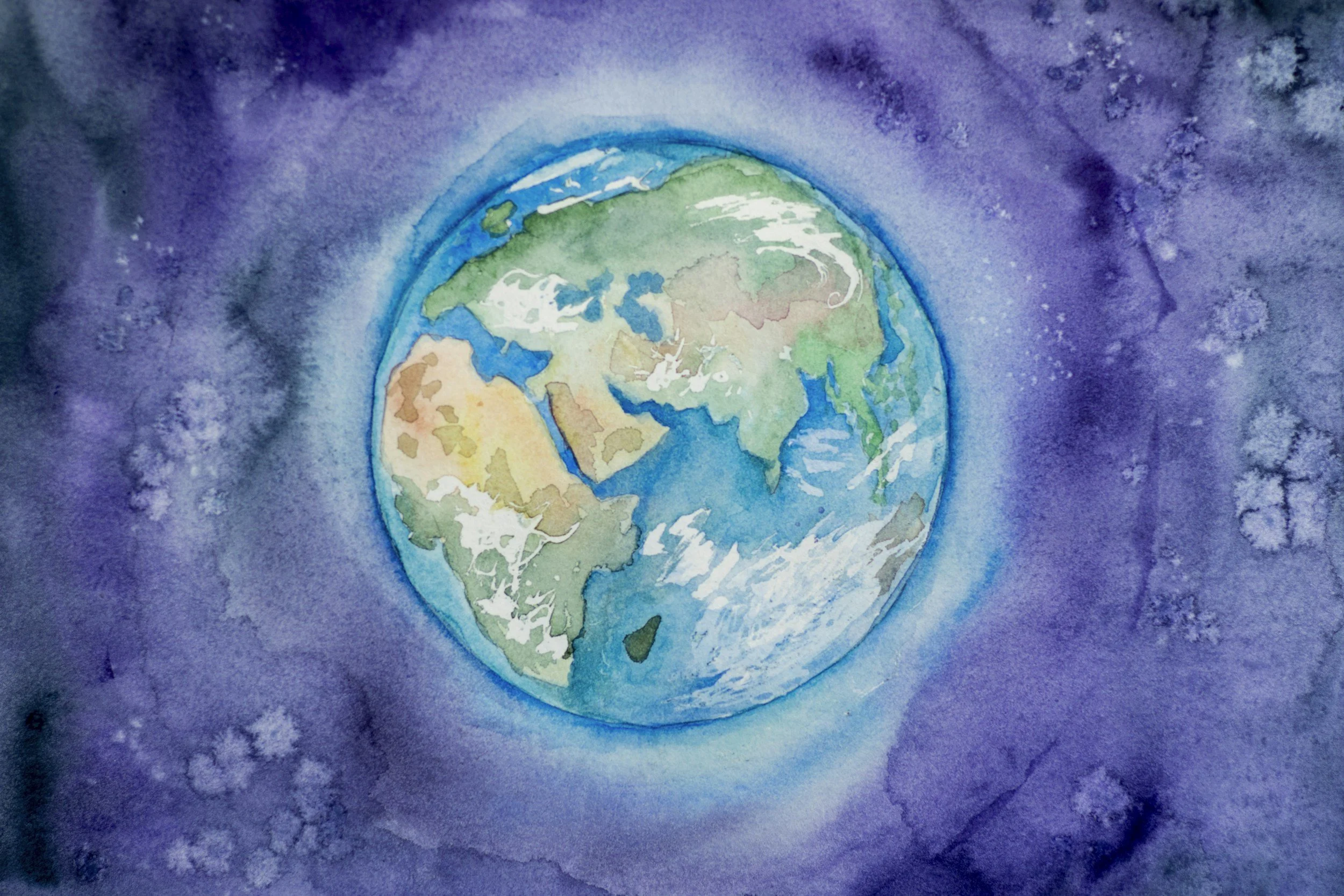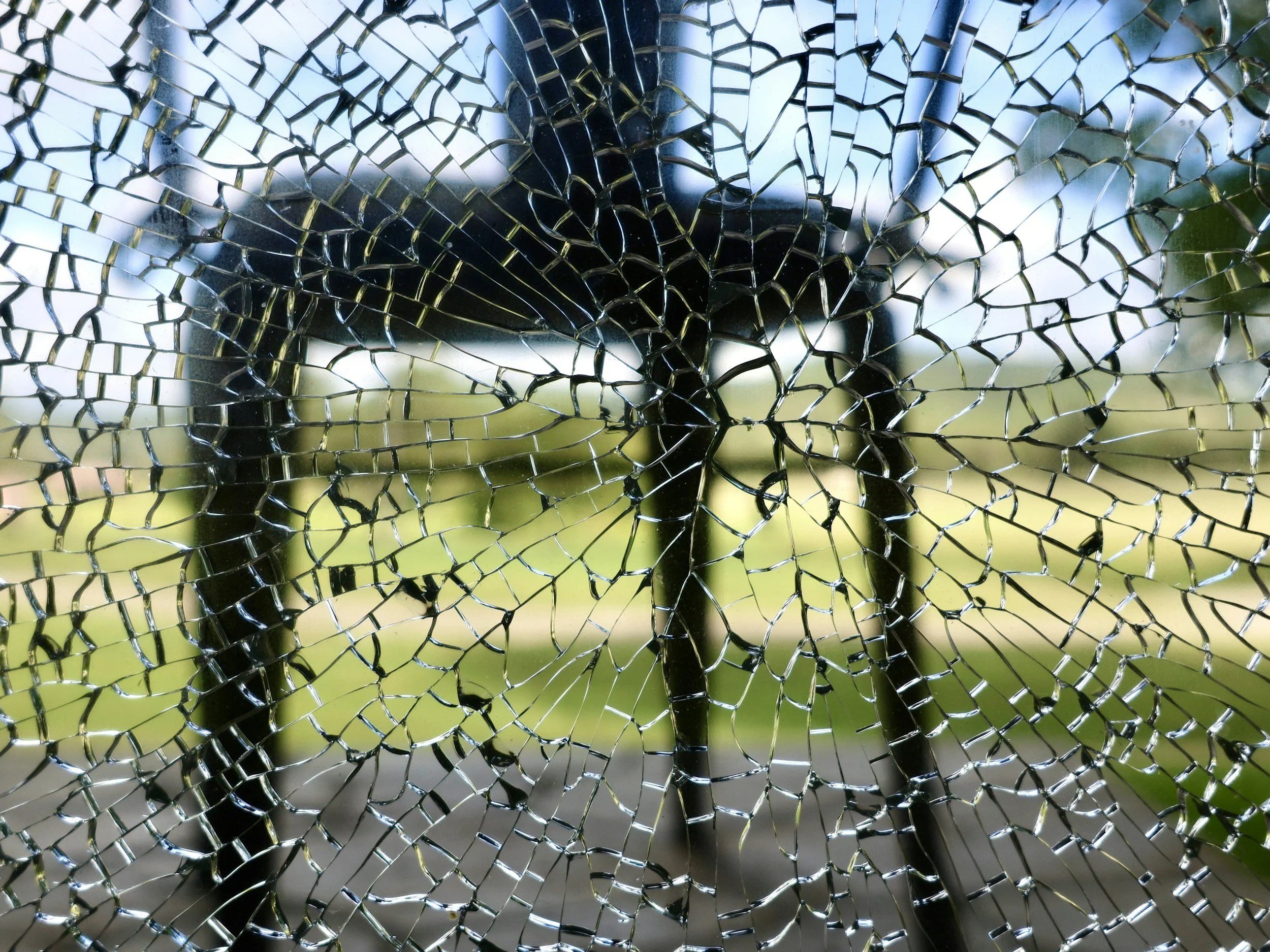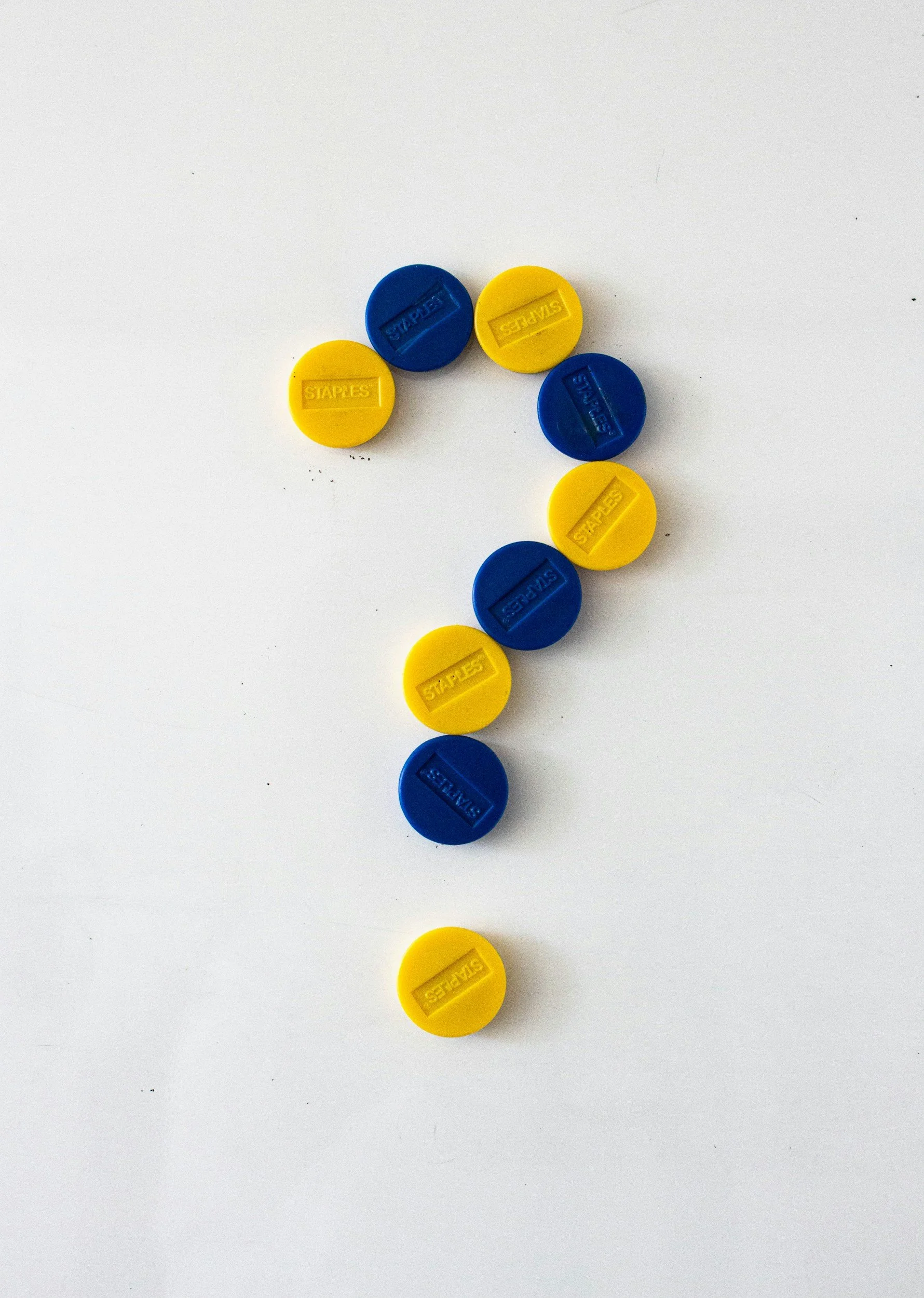When Life Feels Pointless After Loss: Rebuilding a World of Meaning
When my person first died, it suddenly felt like nothing else mattered. The things that once felt urgent no longer held the same weight.
Moving towards my goals seemed insignificant. I vividly remember having no appetite for what used to be my favourite dish. Sleep eluded me.
My whole world stopped, and I just didn’t care about certain things as much as I used to.
Suddenly, everything that I was worrying about seemed petty in comparison to the death of my person.
I was confronted with the fragility of life. How could it be that a person could be here one moment and gone the next? It all felt surreal — as if they could walk through the door at any moment. Yet, I was hit with the crushing realization that they were not coming back. And with that came another truth: life as I knew it was over.
If you’ve ever felt like life has no point after losing someone you love, please know you’re not alone. As a grief therapist who have walked alongside many grieving hearts, this is something I hear often. This sense of emptiness is understandable when your person was such a big part of what brought your life meaning.
When someone we love dies, the pillars of meaning that shaped our life, whether consciously or unconsciously — our routines, dreams, values, goals, and sense of direction, can collapse with them.
In this blog, I write about my reflections on grief and meaning and suggest questions to reflect on as you process your grief.
When The World Keeps Spinning and Life Feels Pointless
In the early days of loss, it can feel like the world keeps spinning while yours has completely stopped. The people around you continue talking about everyday things — their plans, their hopes and their everyday worries.
You might feel disconnected from them and wonder, Who cares about any of this? Life feels meaningless. What is the point of life if all of us die in the end? Is there any value in all our accomplishments when it all comes to a halting end? These are big questions that many grievers ask themselves.
Life can feel pointless when all the dreams and the future you hoped for have gone with the person who died. A part of you has died too, and it can seem impossible to imagine living in a world without them. When there is nothing to look forward to, it can feel like there is no reason to keep going in life.
It isn’t just the loss of your person, it’s also the loss of your identity — who you were when your person was alive. Many of the grieving hearts I support tell me that they feel hopeless that things can ever feel better. There is a fear that they will live in a constant state of intense grief and that life will no longer be worthwhile.
The thought of a whole lifetime without your person likely feels daunting and overwhelming. One day without them can feel like a million years.
When You Feel Empty and Life Loses Its Meaning
In grief, there can be a deep sense of feeling emptiness. It’s such an immense challenge to reorient yourself to a life without your person when nothing makes sense anymore.
You might feel lost, hopeless, or unsure of how to begin rebuilding the pieces that remain after the loss.
Know that there is no rush to find meaning or to make sense of what happened. Grief is not a problem to solve. It’s a process to live through, slowly.
You don’t have to find silver linings or fill the void inside you. You have full permission to honour your true feelings, even if that means not finding meaning right now. Your person is irreplaceable and their absence weaves through everything you do.
What matters most is allowing yourself to be exactly where you are and reaching out for support when you feel ready to process the senselessness of it all.
Perhaps meaning may appear in small ways — this looks different for each person. It might come through finding ways to continue your bond with your person and carrying the love you shared with your person in your heart as you get through each second, moment to moment.
Shattered Assumptions and Uncertainties: When What You Believed No Longer Fits
Perhaps you once believed that good things happen to good people — and now that belief no longer holds. The world can start to feel random and senseless, as if 1 + 1 no longer equals 2.
You may have once felt that the world was mostly a safe place — you don’t expect to suddenly get hit by a car while attending a community event. Yet, the tragic Lapu Lapu event that happened this year in Vancouver, BC deeply shook that sense of safety and trust. When something so unexpected happens in a space meant for connection and celebration, it can leave you wondering: If I can’t even feel safe there, where can I ever feel safe?
You may have had certain earlier beliefs or you may have believed in God prior to the loss. With loss, you might begin to question everything, including your spirituality. How can a good God allow such pain? You might think, “If this is who God is, I’m not sure I want to believe at all.” You might feel confused as to what to believe in. The loss of your belief system, which previously gave life meaning can be really devastating.
If you’re not sure if life continues after death, it can make everything feel pointless. What if there’s nothing after this? That thought can be daunting, even terrifying at times. It can bring up feelings of emptiness and hopelessness.
Even if you believe that your person continues to exist in some form after death, it may still feel like life has lost its meaning now that they’re no longer here in the physical world. The ache of their absence can make it hard to find comfort in any belief, no matter how deeply held. You miss your person dearly and you ask yourself, “How can life be worth living if the person who loved me unconditionally and rooted for me is no longer here to do this?”
When these core assumptions about how the world ought to work are shattered and when you are uncertain about what happens after death, life can stop making logical sense. The meaning you once made of the world, the beliefs and values that once gave it structure — have now fallen apart, and you’re left not knowing what to make of it.
For many, grief is not only about losing someone — it’s also about losing the feeling that life is predictable or secure. After a loss or tragedy, you may begin to question everything you once believed about safety, fairness, or control. These experiences can leave a deep imprint on your body and nervous system, making it difficult to feel safe or grounded again. Your body’s nervous system is likely on alert, waiting for the next threat.
Slowly Rebuilding Safety and a World of Meaning
Losing a sense of safety can deeply impact your sense of meaning in the world. Rebuilding safety after loss often begins with small, intentional steps. It might look like creating moments that send cues of safety to your nervous system such as, wrapping yourself in a blanket, lighting a candle, spending time with a friend who helps you feel grounded, or grieving alongside others in a grief support group. These seemingly simple acts remind your body that some safety and connection still exist, even when so much has changed.
Finding meaning doesn’t always come from grand realizations. It can emerge through moments of safety of remembering your person in a small ritual, noticing a moment of warmth or connection, or slowly re-engaging with life at a pace that feels supportive to your nervous system.
Moving your body in ways that ground you can also help support the rewiring of your nervous system. This might mean going for a run while listening to music, stretching gently, or orienting yourself to your surroundings by noticing things in the colours of the rainbow as you walk. These mindful movements help your body remember that, even in grief, moments of safety and aliveness are still possible.
Redefining Hope After Loss
After losing your person, the usual definition of hope might no longer fit. Hoping for life to return to what it was before brings pain, because that world is gone.
The simplest of tasks now take so much energy and effort to do. Getting out of bed can be the hardest thing to do when you have to face another day void of meaning. Everything that once felt effortless may now feel mundane and pointless.
Hope now might look like simply getting through one hour, one day, or one small moment at a time. Redefining hope can create a new sense of possibility — a path toward discovering ways to live alongside your loss while still carrying the love and memories of your person.
Redefining Meaning After Loss
As humans, we constantly seek meaning, whether consciously or unconsciously. Much of what gives life meaning comes from our relationships, work, routines, a sense of belonging, community, spirituality and the contributions we make to people in our lives. Sara Kuburic, known as @millennial.therapist and author of It’s On Me, writes, “The only way humans can face life without despair is by living it meaningfully.” There is so much truth in this — a life void of meaning can feel profoundly empty.
When a death loss happens, meaning is often called into question. We may ask: What makes life meaningful now? Why did this happen to me and not someone else? What is the point of continuing when my person is gone? Can life ever be good again? Can I ever be happy again? Why did God allow this to happen? These existential questions rarely have quick or simple answers — and it can feel as though the ground beneath your feet has been pulled out from under you, leaving you disoriented and unsure of how to continue living in a world that no longer feels familiar.
The death/(s) might never make sense, and your questions may never have clear answers but know that you have permission to feel anger and confusion.
Even when life feels meaningless, and while you’re still asking these questions, it’s still possible to notice small, grounding moments — the warmth of sunlight through the window, the sound of birds in the morning, your favourite song, or a meaningful conversation with a friend. These small moments don’t erase the pain, but they can remind you that meaning still exists in fragments.
It’s okay to sit with your truth that everything feels meaningless right now. Your world has shifted completely, and it is a lot for your mind, heart and body to process the enormity of your loss. Meaning is not something to force — it might unfold slowly, as your heart find ways to live with what has happened.
As author Sara Kuburic writes in It’s On Me, it may not only be about finding meaning, but also about creating and living into it. Searching for meaning can sometimes feel vague, daunting, or unreachable. But when you begin to live in alignment with your values and creating small meaningful moments — you may start to notice small glimmers of purpose again.
Any new sense of meaning will not look or feel like the life you had before the loss. It will be different — and that’s completely understandable.
Questions for Reflection
These questions do not replace therapy but can help you explore your grief with compassion and curiosity. It’s natural that so much of your meaning and identity was tied to your person — that love is irreplaceable.
What brought you meaning prior to this loss?
Which of those sources of meaning still remain?
Are there new sources of comfort or connection, however small, that feel meaningful now?
In what ways can you continue to keep your person in your life?
When was the last time you experienced a meaningful moment? (e.g. admiring the sunset, spending time with a friend)
Living with Hope and Meaning Again
Rebuilding a world of meaning after loss doesn’t mean forgetting your person — it means learning to live in a changed world while still carrying their love within you. Meaning after grief sometimes emerges slowly, like sunlight filtering through the cracks.
If you’re feeling lost or hopeless right now, please know that there are ways to process the loss of meaning after loss.
Grief therapy offers a safe and compassionate space to process the pain, confusion, changed sense of self and loss of safety that follow grief or trauma. As therapists specializing in grief, we can support you in navigating the emotions that feel too heavy to hold alone, and gently support you in rebuilding your world of meaning. Grief therapy can support you in moving towards rediscovering hope and meaning at a pace that feels right for you.
FAQs About Feeling Like Life Has No Point After Loss
Is it normal to feel like life has no meaning after losing someone significant to me?
Yes. Feeling like life has no point after loss is one of the most common and painful parts of grief. When we lose someone significant, our world can feel shattered. The routines, dreams, and goals that once gave our days structure can suddenly seem meaningless. As your heart begins to process and integrate the loss, you might find glimmers of hope and small meaningful moments.
How long does it take to find meaning again after loss?
There’s no timeline for grief. For some, small glimmers of meaning come up within months; for others, it can take years. What’s important is not rushing the process. Meaning after loss may come out of a continuing your bond with your person — through remembering and finding ways to honour them in your daily life.
Why do my goals and daily life feel so meaningless right now?
After loss, your nervous system and sense of identity are in shock. The person who gave context and grounding to your life is no longer here, so everything feels disoriented. It takes time for your body and heart to catch up to this reality. Right now, your energy may be focused entirely on surviving the emotional pain — and that’s enough.
How do I start finding meaning again after grief?
Meaning after loss often begins with noticing small moments — a warm cup of tea, sunlight on your face, sharing stories about your person, talking to someone who understands grief, or doing something kind in your person’s honour. You don’t have to force meaning — know that you have permission to honour where you are at in your grief.
What if I can’t find meaning at all?
You are not failing at grief if meaning doesn’t come. Sometimes, the most meaningful act is simply surviving each day. New understandings and perspectives might form as you process grief — but for now, it’s enough to just be and to listen to what your grief is telling you.
If you’re struggling to make sense of your world after loss, you don’t have to do it alone. At Anchored Hearts Counselling and Grief Therapy, we offer a safe and compassionate space to process your grief, reconstruct a world of meaning, and reengage with life at your own pace. We are here for you when you feel ready to reach out.











